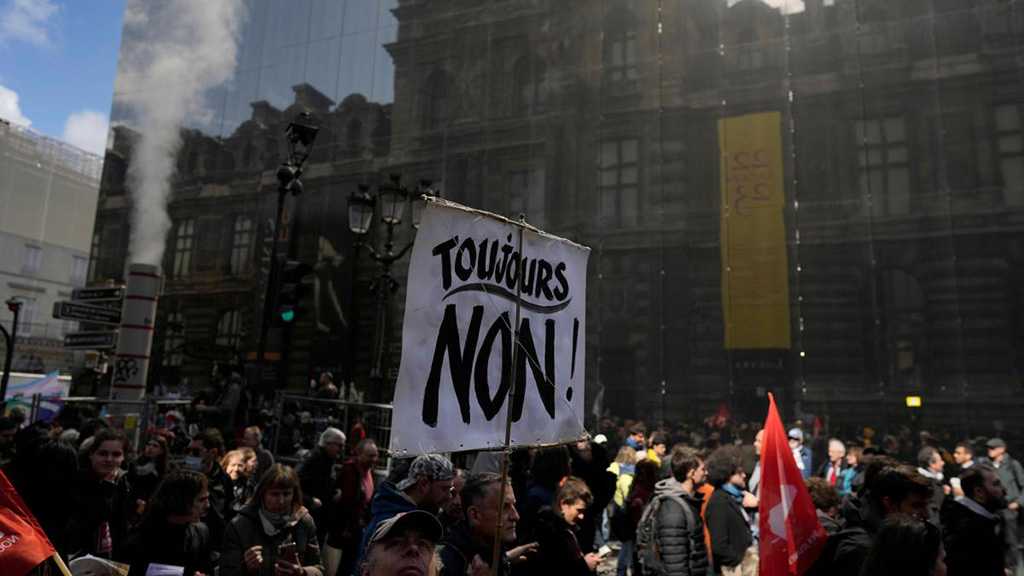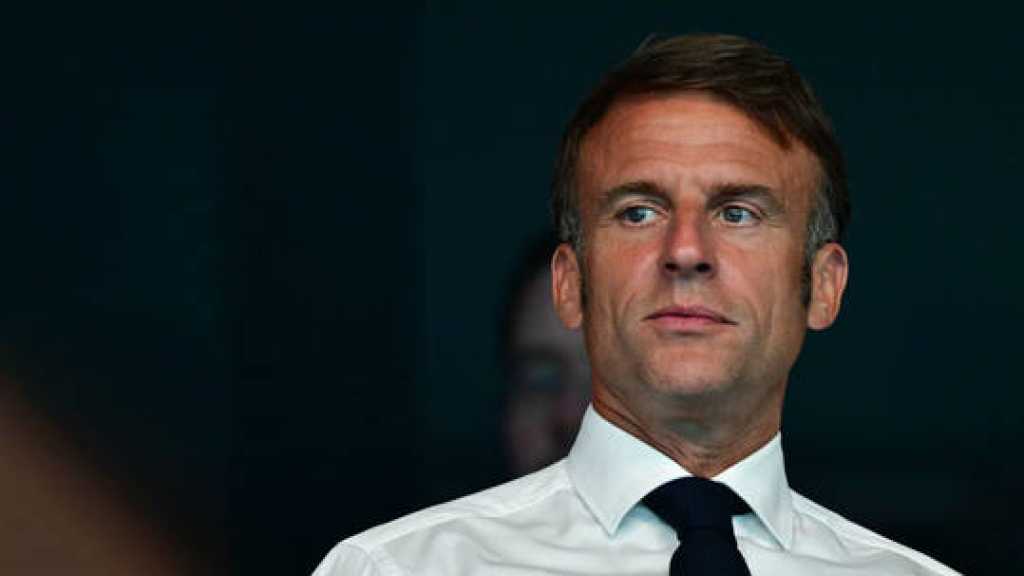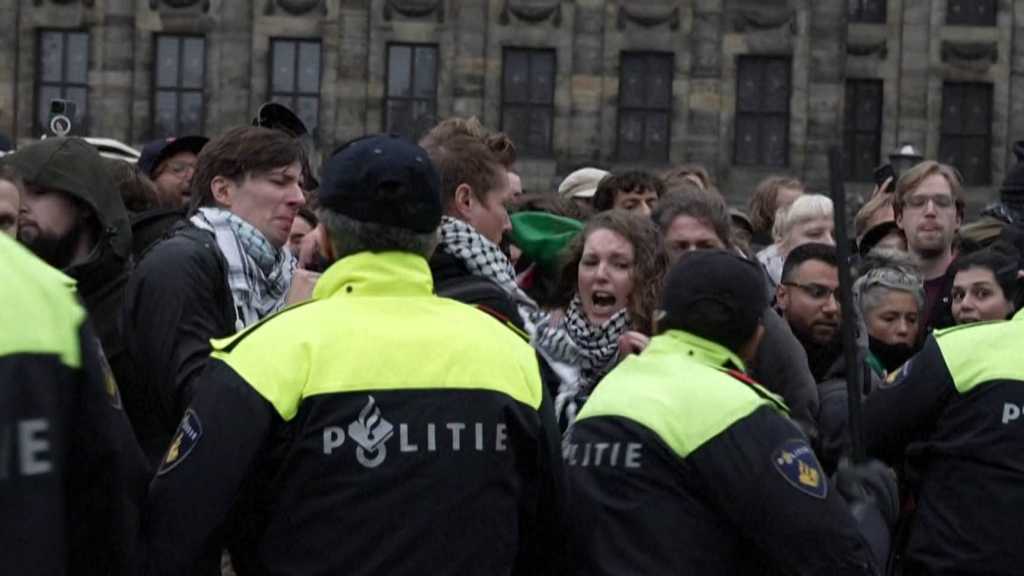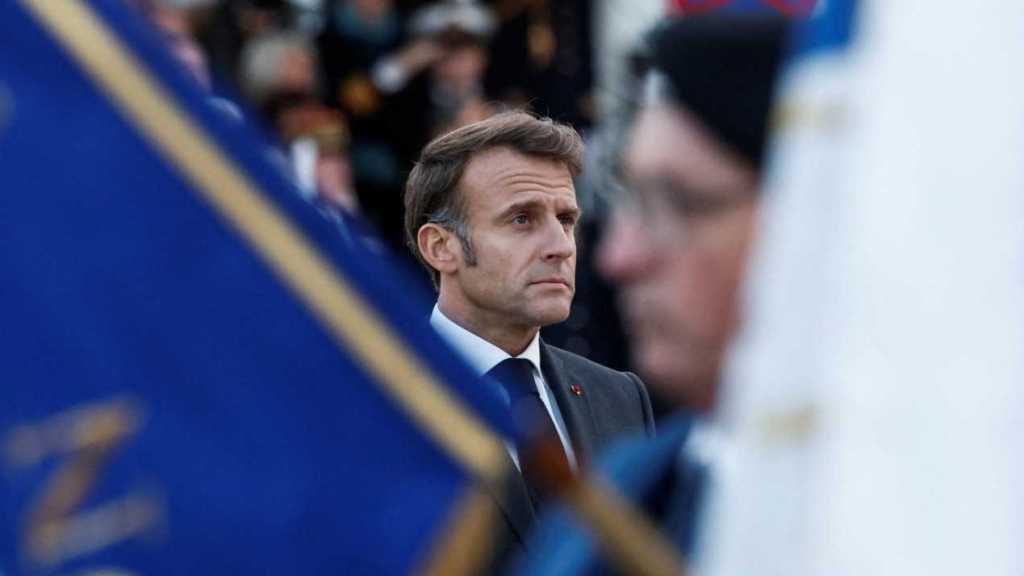French Protests Persist as Top Court Backs Macron’s Unpopular Pension Plan

By Staff, Agencies
Protest rallies across France and in the capital Paris have continued despite a high court ruling, clearing the way for French President Emmanuel Macron’s controversial pension reform to be enforced.
Eye-witness images of the protests in Paris and the southern city of Lyon on Friday showed objects burning on the streets as riot police attempted to suppress rallies following the approval earlier in the day by the country’s Constitutional Council of Macron’s flagship pension reform, which sparked nationwide protests and labor strikes in recent months.
The development came as French officials insisted that the deeply unpopular legislation, which raises the retirement age from 62 to 64, will be rapidly enacted and enforced, local media outlets reported.
This is while opinion polls show a great majority in France reject the policy changes, as well as the fact that Macron’s administration pushed the legislation through parliament without a final vote it might have lost.
The Constitutional Council, however, ruled that the government's actions were in line with the constitution and approved raising the legal retirement age, with only peripheral measures meant to boost employment for older workers struck down on the grounds that they did not belong in this bill.
As part of the ruling, the council further refused a first request by opposition lawmakers to hold a referendum on the reform. A last-minute second request put forward Thursday to hold a referendum on the reform remains under consideration.
Prior to announcing the ruling, increased security was put in place in Paris amid anticipation of spontaneous protests.
Political observers, meanwhile, insist that the widespread opposition to the government's reform bill may generate longer-term political consequences, including a potential boost for far-right politicians.
Pension reform in France, where the right to retire on a full pension at 62 is deeply cherished, has always remained a highly sensitive issue, particularly in recent months as social discontent surged over the rising cost of living.
Sweeping protests against Macron’s proposed changes to the pension system have paralyzed major services across France this year resulting in repeated violent clashes between police and demonstrators, exposing the extent of police brutality in a European country that most often pretends to advocate for human rights.
The final approval of the pension reforms – which followed seven hours of debate within the nine-member Council – is a victory for Macron one year into his second presidential term, but the unpopularity of the new law has come at a great political cost with his approval ratings at near-record-low levels.
Meanwhile, the leader of the French union CGT, one of France’s main unions, has called for a “historic” protest on May 1. Opposition parties have also suggested that they will continue to fight against the plans.
Far-left leader Jean-Luc Mélenchon said the decision shows the council “is more attentive to the needs of the presidential monarchy than to those of the sovereign people” while the far-right’s Marine Le Pen called on those who oppose the changes to vote for her at the next election.
Comments
- Related News




